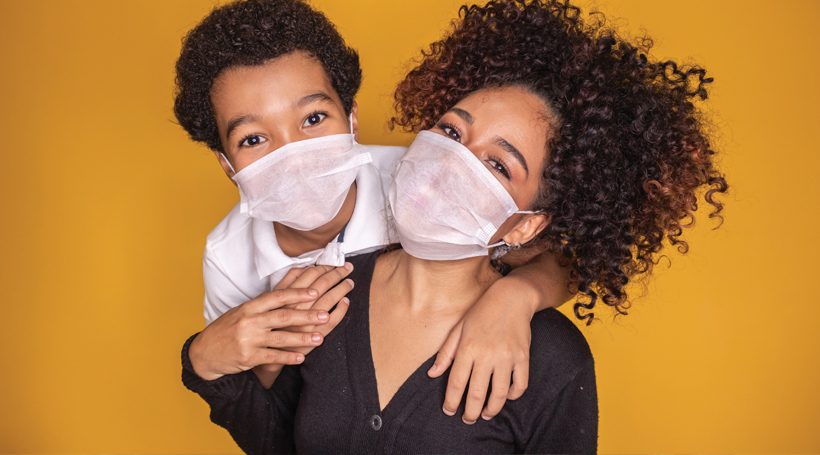Coronavirus does not choose who it infects based on gender. But that doesn’t mean men and women are affected the same way. South Jersey medical experts weigh in on the many ways the pandemic hits women differently – and in some cases harder.
Coping with soaring stress levels

Alex Strauss, MD
While many aspects of life have returned to some semblance of normal since the state shutdown eased, the stress caused by the remaining restrictions and the economic fall out has landed more heavily on women than men, explains Alex Strauss, MD, a partner at Centra Comprehensive Psychotherapy & Psychiatric Associates.
Before the pandemic, many mothers were already stretched thin juggling their own careers with the demands of raising children and caring for family. Now, with so many kids unable to return to their regular school and extracurricular schedules, mothers are more likely to fill the voids, while at the same time attending to aging parents and other family members who require more help, says Strauss. And something has to give.
“There’s this idea that women have to be able to do everything, and it’s harmful,” Strauss says. “I’ve seen more women seeking help to combat depression and anxiety, as well as an exacerbation in women who were already battling those issues.”
As of June, he notes, there were more than 170,000 new cases of depression and anxiety across the U.S.
Many of his clients are struggling with guilt over decisions they’ve made related to navigating the pandemic world.
“It’s very difficult to know if you’ve made the right decision for your children, family or career,” he says. “If you take a break or pause from work, will you be able to get back into the workforce? Is sending your kids to school putting them at unnecessary risk, and does keeping them home mean they won’t receive the same quality of education?”
“When it comes down to it, the choice you make is the correct choice,” he adds. “Doubting or second-guessing yourself at every turn will just make matters more difficult. Be kind to yourself – what we’re going through is already hard enough.”

David O’Neil, MD
When heart disease goes undiagnosed
Knowing that the virus can be deadly for people with undiagnosed heart conditions is something that keeps David O’Neil, MD, awake at night.
“The danger of Covid-19 is that it’s so invasive it affects basically every organ,” says O’Neil, a Jefferson Health cardiologist who practices in Voorhees. “The heart is particularly vulnerable, and women need to be attuned to that.”
Women tend to be diagnosed with heart disease later in life, says O’Neil, noting that both doctors and patients aren’t always looking for the right warning signs.
“Often, cardiovascular symptoms are described from a male perspective,” he says. “Problems that may present in men as chest pain may show up in women through headaches or difficulty breathing. Because these symptoms in women may not be associated with heart issues, women often don’t get checked out until it becomes a serious problem.”
Conditions diagnosed during pregnancy are also indicators of heart health risks later in life, he says.
“If a woman develops issues like hypertension or preeclampsia during pregnancy, their risk of future heart disease is actually pretty high,” he says. “It’s not as concerning when they’re still young. But then the high blood pressure sneaks up on them much later in life when it can be life threatening.”
And with Covid, that’s even more dangerous.
“If a woman with undiagnosed heart disease isn’t receiving the medical treatment she needs,” says O’Neil, “she doesn’t know to be extra cautious while navigating the world outside her home during the pandemic.”
Battling cancer in a pandemic

Rachel Levenbach, MD
A cancer diagnosis is difficult at any time. But starting treatment in the midst of a pandemic adds new layers of hardship, says Rachel Levenbach, MD, a medical oncology and hematology specialist at Regional Cancer Care Associates in Moorestown.
“It’s a very vulnerable time for our patients,” she says, “especially for those undergoing treatment for cancers affecting the more intimate areas of their bodies.”
Cancer specialists have worked out new protocols to provide the same level of care with added protections, says Levenbach. Emerging data suggests that people who contract Covid while undergoing such treatments are at risk of more severe complications due to the infection.
“Sometimes that means limiting chemotherapy if other treatment options are available, and sometimes that means imposing even stricter restrictions on patients,” she says.
Even in ordinary times, these patients are considered vulnerable. Now, those risks are even more serious, she says.
“We’re asking patients not to leave their houses, not to have visitors or bring people with them to long chemotherapy treatments,” she says.
Social distancing is also challenging.
“I’m someone who wants to hug my patients, hold their hands,” she says. “It’s really difficult to find new ways to make an emotional connection.”

Wendy Martinez, MD
When stress makes you sick
It’s always been important for women to be attuned to their bodies and emotional wellbeing, but never more so than during a pandemic – when health is the first thing on everyone’s minds, says Wendy Martinez, MD, founder of The Women’s Group for OB/GYN.
“So many women are at home with children more than they’ve ever been, some because they’ve lost their jobs, so they’re losing time for themselves,” says Martinez. “It’s showing up in their health.”
When something is wrong – their blood pressure is high or their hormones are off balance – medications can help, she says, but they’re rarely the optimal solution. That’s when lifestyle factors come into play, she says. With the pandemic (still) creating unpredictable schedules and economic stress, healthy eating, exercise and regular sleep are powerful remedies.
“It’s amazing how often I see women come in battling depression or mood swings from PMS,” she says. “Yes, it’s a factor of the pandemic, but hormones are also at play. When we exercise, it releases endorphins that fight off these triggers in your body.”
“Health problems are never about one area of the body,” she says. “Everything is connected, and Covid-19 has affected women in unexpected ways.”
What’s different, what’s the same?

Raquel Nahra, MD
It may feel like Covid has raged on forever, but in the world of medicine, it’s still an extremely new disease. As doctors learn more about the virus every day, new trends are coming to light, says Raquel Nahra, MD, an infectious disease specialist at Cooper University Health Care.
From a statistics standpoint, women are less likely to contract Covid than men, experience less severe symptoms and are less likely to die from the virus. Doctors don’t know definitely why that is, but there are theories.
“There are factors that put people at higher risk of contracting the disease in general, such as cardiovascular disease, diabetes and hypertensions – all of which present in men in higher instances than in women,” Nahra says.
Health habits are also at play.
“Women tend to adhere to social distancing more,” she says. “They’re more likely to wear masks in public.”
But that doesn’t mean women can sit back and downplay their risk – far from it.
“The truth is, we still don’t know enough about this to make any definitive statement,” she says. “So in the meantime, everyone should act like we’re at high risk. Stay home, wear a mask outside and practice good hygiene.”
“At the end of the day, it’s about prevention. As we learn more, recommendations constantly change,” she adds. “But what hasn’t changed is the need for everyone to stay alert to prevent further transmission.”














